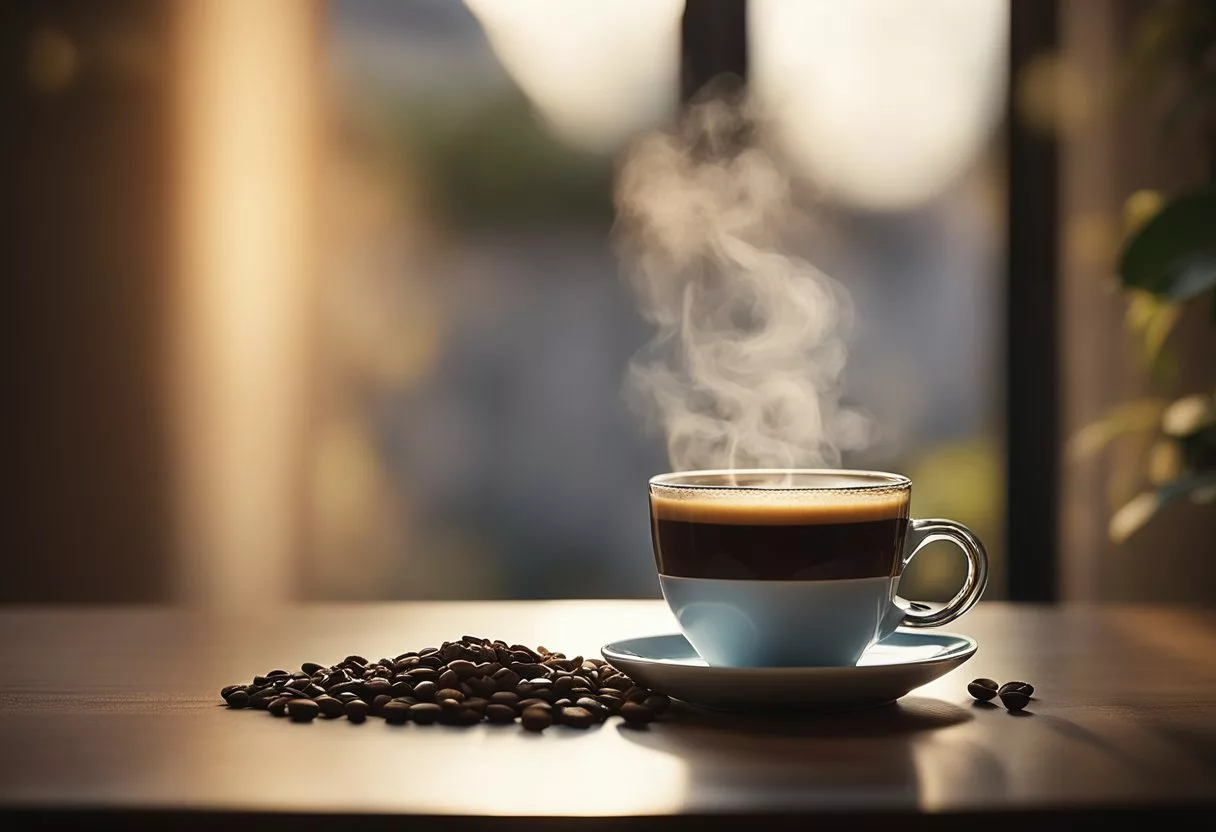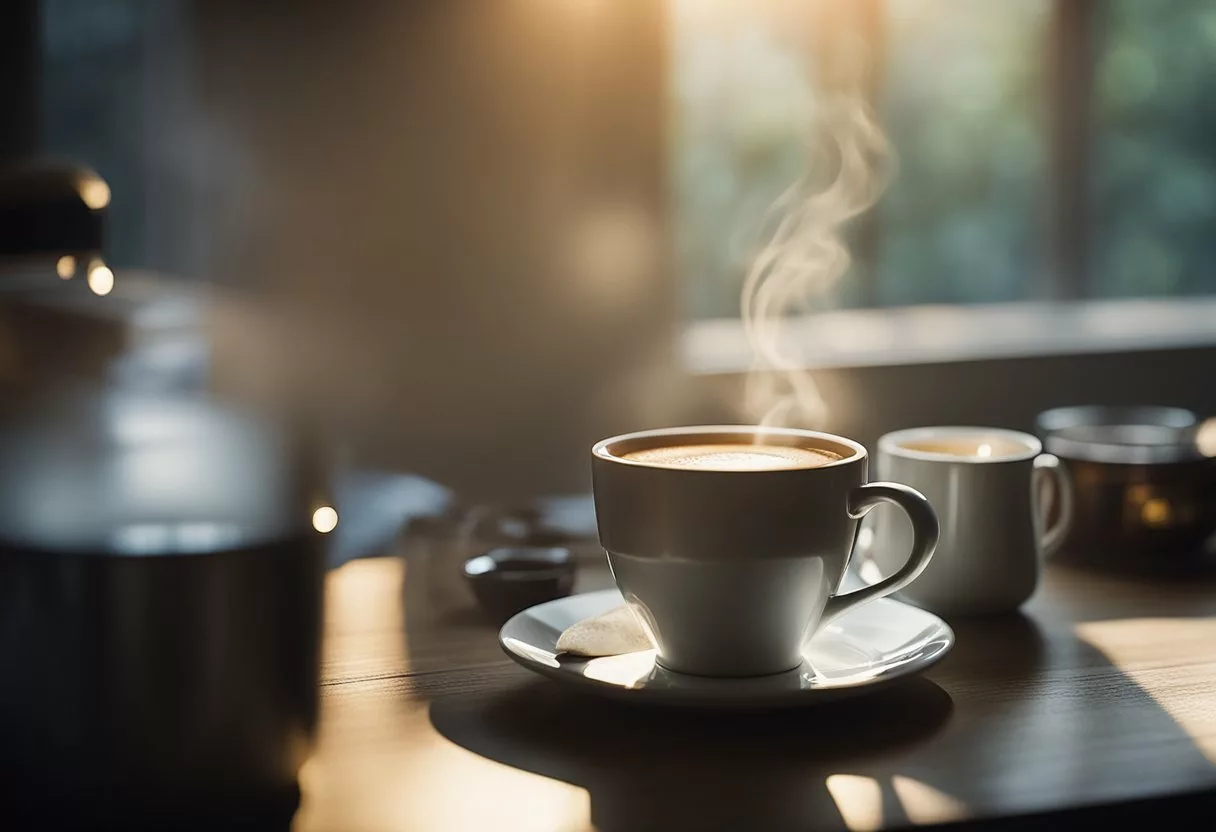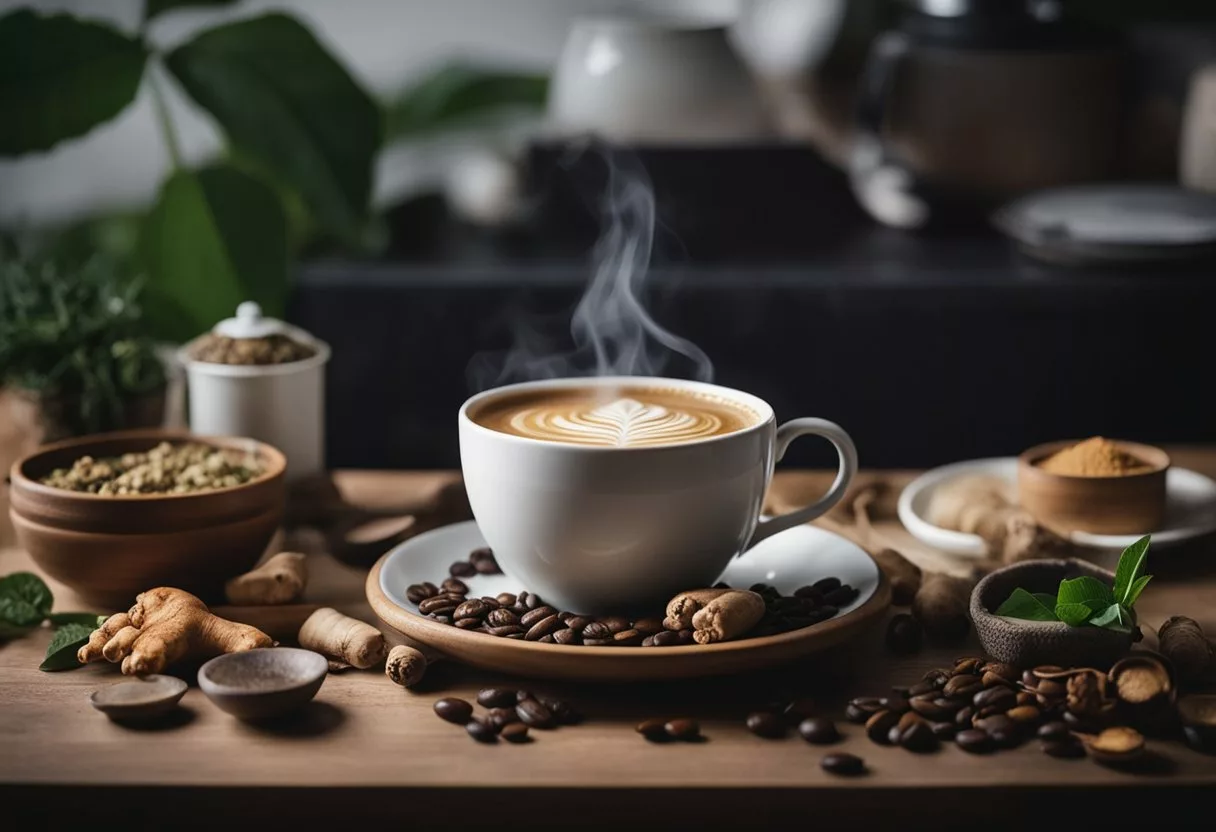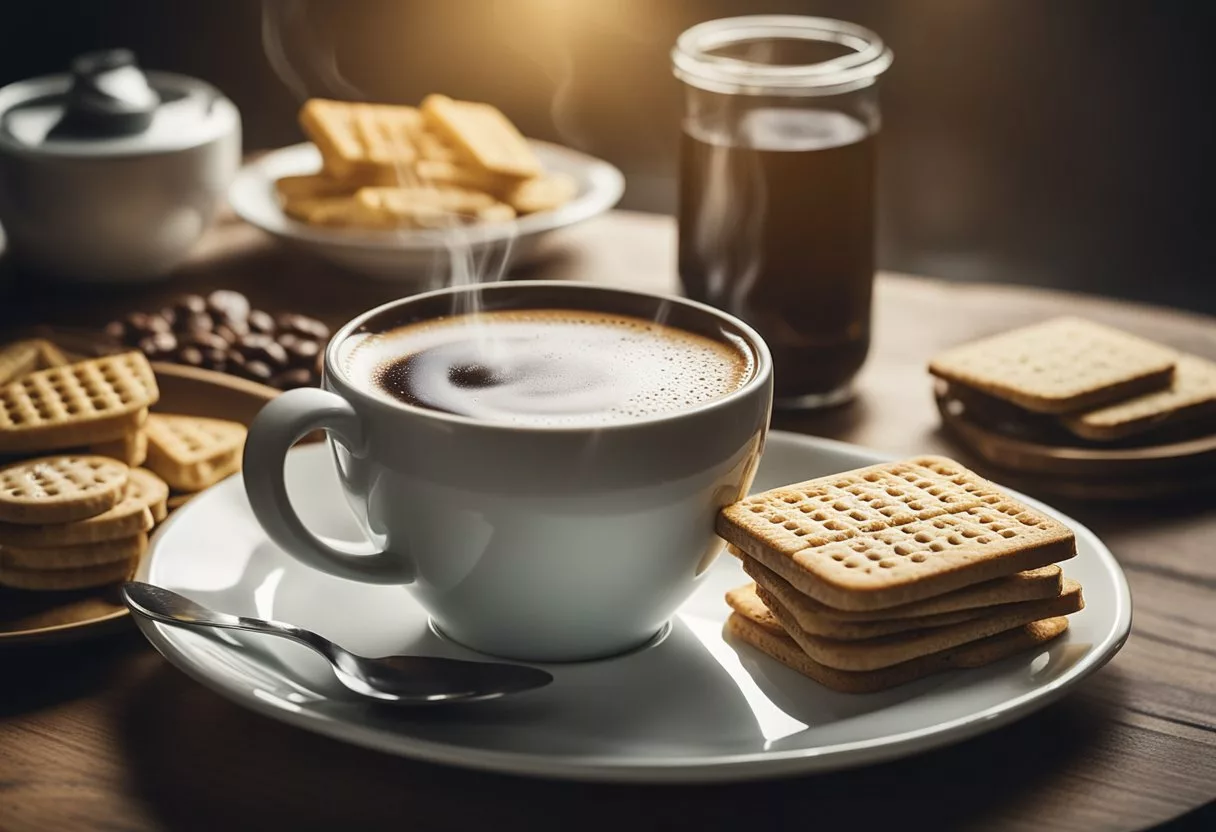Hangovers are an unpleasant aftermath of a night spent drinking too much alcohol. Common symptoms include nausea, headaches, and fatigue. Some people reach for coffee in hopes of warding off these effects. However, coffee may not be the best remedy for hangover nausea. Drinking coffee can worsen dehydration, which is already an issue due to alcohol’s diuretic effects.

Despite its popularity, coffee has mixed effects on hangover symptoms. It may help alleviate a headache due to its caffeine content, but it can also irritate an already sensitive stomach. For a more effective solution, alternatives like hydrating with water, coconut water, or opts for ginger tea.
When looking for hangover remedies, it’s essential to consider options that are gentle on the stomach and help rehydrate the body. While coffee might be a go-to for its stimulating effects, it is not a cure-all and can exacerbate certain symptoms of a hangover, particularly nausea. For more detailed information on this topic, you can explore the full article from the Cleveland Clinic.
Understanding Hangovers

Hangovers can cause various symptoms that make people feel very unwell. Key factors include dehydration, the effects of alcohol on the body, and multiple unpleasant physical responses.
Symptoms of Hangovers
Common symptoms of hangovers include headache, fatigue, nausea, vomiting, and diarrhea. These symptoms are often accompanied by a general feeling of being unwell.
Hangover symptoms can range from mild to severe. Alongside these, people may experience dizziness, sensitivity to light and sound, and difficulty concentrating. Even minor physical activities can feel exhausting.
These symptoms usually begin several hours after drinking and peak when blood alcohol levels drop significantly. The duration of a hangover can vary, but symptoms typically last for about 24 hours.
Causes of Dehydration in Hangovers
Dehydration is a major factor contributing to hangover symptoms. Alcohol is a diuretic, which means it increases urine production. This leads to the loss of more fluids and electrolytes than are being consumed, causing dehydration.
One key component of this process is the reduction of the hormone vasopressin, which helps the kidneys manage fluid levels. When drinking alcohol, the decrease in vasopressin increases urine output, resulting in a higher risk of dehydration.
Besides water loss, essential electrolytes like sodium and potassium are also depleted. This can lead to muscle weakness, irritability, and thirst, making the hangover even worse.
Alcohol’s Effects on the Body
Alcohol consumption has several toxic effects on the body. It irritates the lining of the stomach, increases the production of stomach acids, and delays stomach emptying, which can cause nausea and vomiting.
Alcohol also affects blood sugar levels by reducing the liver’s ability to produce glucose. This can result in hypoglycemia, leading to symptoms such as fatigue, weakness, and irritability.
Additionally, alcohol increases the levels of inflammatory chemicals in the body. These chemicals can cause headaches and muscle aches. The presence of congeners, which are toxic substances found in different types of alcohol, can also worsen these inflammatory responses, making the hangover more severe.
Role of Coffee in Treating Hangovers

Coffee is widely considered when dealing with hangovers due to its caffeine content. However, its effectiveness depends on how it interacts with various hangover symptoms and its impact on dehydration.
Caffeine’s Effect on the Body
Caffeine is a stimulant that can help combat the fatigue and sluggishness that often follows a night of drinking. When consumed, caffeine can increase alertness and improve focus. This can be beneficial for those struggling to start their day after drinking alcohol.
Caffeine also affects the central nervous system, which can temporarily reduce headaches by constricting blood vessels. However, this effect is short-lived, and consuming too much coffee can lead to increased heart rate and blood pressure. People should be mindful of not over-consuming caffeine to avoid these issues.
Coffee and Hangover Symptoms Relief
Coffee can offer some relief from hangover symptoms like headaches and fatigue. Its stimulating properties help in waking up the brain, making individuals feel more alert and less groggy. Additionally, the warmth of coffee can be comforting and help in easing a sour stomach.
However, coffee is not a one-size-fits-all solution. Drinking excessive amounts can worsen nausea, especially if the person is already experiencing stomach irritation. Care should be taken to limit coffee consumption to one cup and preferably choose it without added sugar and cream, which can further upset the stomach.
Consequences of Coffee on Dehydration
Alcohol consumption leads to dehydration, and coffee is a diuretic, which means it increases the body’s need to urinate. This can worsen dehydration if not accompanied by adequate water intake. Dehydration exacerbates hangover symptoms, leading to more intense headaches and fatigue.
For those drinking coffee after alcohol consumption, it’s crucial to also drink plenty of water. Consuming water alongside coffee can help counteract the diuretic effects and maintain proper hydration levels. Hydration is key to mitigating the adverse effects of a hangover and aiding the recovery process.
Staying properly hydrated while enjoying coffee can provide some relief without worsening the hangover symptoms significantly.
Alternative Hangover Remedies and Strategies

Addressing a hangover involves more than just drinking coffee. Key strategies include rehydration and rest to help the body recover.
Rehydration Solutions
Dehydration is a major factor in hangovers. Drinking plenty of water is essential to rehydrate the body. Sports drinks with electrolytes can also be beneficial as they help replenish lost minerals like sodium and potassium. These minerals are critical for maintaining fluid balance.
Another good option is eating bananas. They are high in potassium, which can help restore electrolyte levels. Ginger tea is another natural remedy that can soothe the stomach and reduce nausea. Adding a bit of honey to the tea provides sugar, which may help stabilize blood sugar levels.
Rest and Recovery
A significant part of hangover recovery is getting ample rest. Sleep helps the body repair and reduce symptoms like headaches and fatigue. Eating small, nutritious meals can also aid recovery. Foods rich in carbohydrates such as toast or crackers can boost energy levels. Including protein like eggs provides essential amino acids that the body needs.
Balanced meals with vitamins and nutrients are important. For instance, orange juice can provide vitamin C, which aids in detoxifying the liver. Taking time to relax and allow the body to heal is crucial in overcoming a hangover.
Preventative Measures and Best Practices

To minimize hangover nausea, focus on responsible drinking, proper hydration, and the right supplements. Each of these measures targets different aspects that can contribute to hangovers.
Moderation in Alcohol Consumption
Drinking in moderation is key to preventing hangovers. This means limiting the number of alcoholic drinks consumed in one session. It is recommended to not exceed one drink per hour to give the body time to process alcohol.
Opt for lower-alcohol beverages and avoid mixing types of liquor. These practices help reduce the strain on the liver and body. Keeping track of alcohol intake also allows better control over consumption, reducing the chances of excessive drinking.
Hydration and Diet Tips
Staying hydrated is crucial as alcohol can cause dehydration. Drinking a glass of water between each alcoholic beverage helps maintain hydration levels. Additionally, consuming electrolyte-rich beverages like sports drinks can help replenish lost minerals.
Eating a balanced meal before and during alcohol consumption also aids in preventing hangovers. Foods rich in carbs and fruits provide the energy and nutrients needed to counteract alcohol’s effects. Bland foods and small snacks can help soothe the stomach and reduce nausea.
Hangover Prevention Supplements
Some supplements can help mitigate the severity of hangovers. B vitamins are known to support liver function and energy metabolism, which can help process alcohol more efficiently.
Milk thistle is a popular supplement believed to protect liver cells from toxins. Prickly pear extract has also shown some promise in reducing hangover symptoms by decreasing inflammation. Taking these supplements before or during alcohol consumption may provide some relief from hangover nausea.
